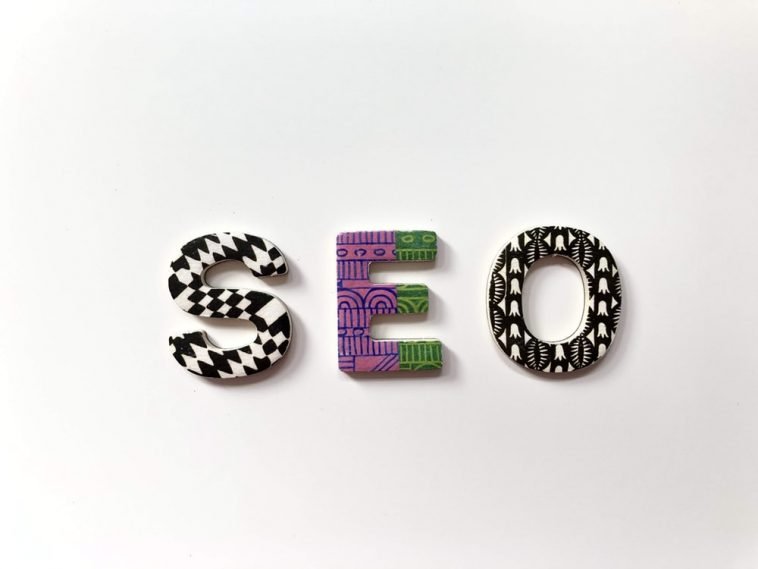Introduction.
If you’re curious about growing your website’s visibility online, you’ve landed in the right place. I want to share with you how search engine optimization (SEO) can help you reach more people and build a stronger online presence.
I understand that SEO might seem confusing at first, but I promise that with a clear guide and friendly advice, you can learn to do it the right way.
In this guide, I’ll cover what SEO is, why it matters, and simple strategies to get started. I’ll walk you through everything from choosing the right keywords to making sure your website is easy for search engines to understand.
What Is SEO and Why Should You Care?
SEO stands for search engine optimization. In simple terms, it means making changes to your website so that search engines like Google, Bing, and Yahoo can understand your content better and show it to the right people. When your site appears higher on search results, more people can find you.
For example, did you know that about 75% of users never scroll past the first page of search results? (Source) This shows that having a well-optimized website is crucial if you want your content to be seen.
SEO isn’t just for big companies; it can help small blogs, local businesses, or personal projects get noticed.
I’ve seen many cases where even a small tweak in the way a website is built can lead to a noticeable boost in traffic.
How Search Engines Work
Before diving into techniques, it helps to understand what search engines do. Search engines use bots, also known as spiders, to crawl the internet.
These bots visit web pages and follow links to learn more about your site. They then use complex algorithms to decide which pages are most relevant to a search query.
Some key factors that these algorithms consider include:
- Content Quality: Is the information useful and well-written?
- Relevance: Does the content match the search query?
- User Experience: Is the website easy to navigate and fast to load?
- Mobile-Friendliness: Does the site work well on mobile devices?
Learning how search engines work can help you tailor your website to meet their criteria. For more on this, you might find Google’s Search Engine Optimization (SEO) Starter Guide very useful.
Starting with Keyword Research
Keywords are the words and phrases that people type into search engines. Finding the right keywords is a bit like choosing the right ingredients for a recipe; it makes a huge difference in the outcome.
Tools like Google Keyword Planner or Ubersuggest can help you see what words people are searching for and how competitive they are.
When I begin my keyword research, I look for terms that:
- Have a decent search volume.
- Are specific to my content.
- Aren’t too competitive.
Using a mix of short-tail (e.g., “SEO”) and long-tail keywords (e.g., “beginner SEO tips for small businesses”) can help attract a broader audience. Remember, your goal is to reach people who are interested in what you offer.
On-Page SEO Basics
On-page SEO refers to everything you do on your website to help it rank higher. This includes:
- Title Tags: Create clear and descriptive titles for each page.
- Meta Descriptions: Write a summary that tells users and search engines what your page is about.
- Headings: Use headings (H1, H2, etc.) to structure your content in an easy-to-read way.
- Alt Text for Images: Describe images so that search engines understand what they show.
- Internal Linking: Link to other relevant pages on your site to help both users and search engines find more content.
I always remind myself that every piece of content should serve a purpose. Each element, from the title tag to the images, plays a role in making your page more attractive to search engines and visitors alike.
Off-Page SEO and Link Building
Off-page SEO is about increasing your website’s reputation and authority. One of the main strategies here is link building.
When other reputable websites link to your content, it tells search engines that your site is valuable.
Some tips for building quality links include:
- Guest Blogging: Write articles for other blogs in your niche.
- Social Media Sharing: Share your content on platforms like Twitter, LinkedIn, or Facebook.
- Engaging Content: Create content that people naturally want to share and link to.
Keep in mind that quality matters more than quantity. A few links from high-authority sites can be more beneficial than many links from less credible sources.
Technical SEO: Laying a Strong Foundation
Technical SEO involves making sure that your website is built in a way that search engines can easily crawl and understand. Here are some simple steps you can take:
- Improve Site Speed: A slow website can hurt your rankings. Use tools like Google PageSpeed Insights to identify issues.
- Mobile Optimization: Make sure your site looks good on mobile devices. Google’s Mobile-Friendly Test is a handy tool.
- Secure Your Site: Using HTTPS instead of HTTP gives your site a security boost and builds trust with your visitors.
- Create a Sitemap: A sitemap helps search engines find and index all your pages.
I like to think of technical SEO as the foundation of a house. Even if you have great content, a weak foundation can cause the whole structure to fail.
Content is King
You might have heard the phrase “content is king,” and it holds a lot of truth. Creating content that is both useful and engaging is essential for SEO. Focus on topics that matter to your audience and aim to provide clear, helpful information.
Some tips for creating great content:
- Write Naturally: Use simple language and a friendly tone.
- Answer Questions: Think about what your audience might be asking and try to answer those questions in your content.
- Update Regularly: Keep your content fresh by updating it with new information when needed.
- Use Visuals: Incorporate images, videos, or infographics to break up text and keep readers engaged.
I always try to write in a way that feels like I’m having a conversation with a friend. It makes the content more relatable and easier to understand.
Measuring SEO Success
It’s important to know if your SEO efforts are paying off. Several tools and metrics can help you track your progress:
- Google Analytics: Provides insights into your website’s traffic, user behaviour, and conversion rates.
- Google Search Console: Shows how your site performs in Google search results and alerts you to any issues.
- Keyword Rankings: Tools like Ahrefs or SEMrush can help you track where your keywords stand in search results.
Setting up clear goals is a good idea. You might aim to increase traffic by a certain percentage or improve the rankings of specific keywords.
Regularly reviewing your progress helps you see what’s working and where you might need to adjust your strategy.
Common Pitfalls and How to Avoid Them
Even with a solid plan, it’s easy to run into challenges. Here are a few common pitfalls and some advice on how to avoid them:
- Overusing Keywords: Stuffing your content with keywords can make it hard to read and may lead to penalties from search engines. Focus on natural use of language.
- Ignoring Mobile Users: Many people browse on their phones. If your site isn’t optimized for mobile, you risk losing a lot of traffic.
- Neglecting Content Quality: It’s tempting to chase quick wins by producing lots of content, but low-quality posts won’t engage your audience. Quality always wins over quantity.
- Forgetting About User Experience: Even if your site ranks high, a poor user experience can drive visitors away. Ensure that your site is easy to navigate and looks appealing.
I’ve learned that taking time to review your strategy and listen to feedback from your audience can make all the difference in avoiding these pitfalls.
FAQs
What is SEO?
SEO stands for search engine optimization. It’s the process of improving your website so that search engines can understand it better and show it to more people.
How long does it take to see results from SEO?
SEO is a long-term strategy. You might start to see improvements within a few months, but significant changes often take 6 to 12 months.
Do I need a large budget for SEO?
Not necessarily. Many SEO techniques, like keyword research and content creation, can be done with little or no cost. However, investing in tools or professional advice can speed up the process.
What are the most important factors in SEO?
Some key factors include quality content, mobile-friendly design, fast site speed, and good use of keywords. Links from other reputable sites also play a big role.
How often should I update my content?
Regular updates are a good idea, especially if you notice that your content is becoming outdated or if there are new developments in your niche. Aim for at least a quarterly review.
For more detailed answers, you might find Moz’s Beginner’s Guide to SEO a useful resource.
Further Resources
If you’re looking for more information to help you master SEO, here are a few resources that I’ve found helpful:
Google’s SEO Starter Guide: A great official resource that explains the basics and provides tips on best practices.
Google SEO Starter GuideNeil Patel’s Blog: Offers practical tips, case studies, and advice for all levels of SEO expertise.
Neil Patel BlogSearch Engine Land: Provides news, guides, and analysis on SEO trends and updates.
Search Engine LandAhrefs Blog: Filled with in-depth articles and tutorials on all aspects of SEO and digital marketing.
Ahrefs Blog
Conclusion
Learning SEO can feel like unlocking a secret code to the online world. With a clear strategy and a willingness to learn, you can improve your website’s performance and connect with the people you want to reach.
I’ve shared some basic steps to get you started, from understanding how search engines work to creating content that speaks directly to your audience.
Every website is unique, and finding the right mix of techniques that work for you might take some time.
But remember, every small improvement can lead to more traffic and better engagement. What SEO tip are you planning to try first?





This was an excellent high quality article you are a talented writer/teacher.
Thanks, I am happy you were able to learn so much.